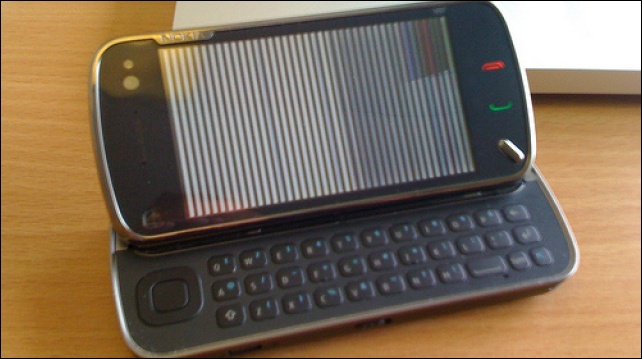The Nokia N97 is, apparently, selling on the order of a million units every month across the world. That's an almost constant demand, not a peak of early adopters buying it when it comes out. It's matching the more populist Nokia 5800, and is slap bang in the middle of the sales curve of the N95 (date corrected to match up the launch dates). In other words, it's doing pretty well for itself and its parent company.
So why the hate?
The vitriol poured into any news about the Nokia N97 specifically, and Nokia's smartphone strategy in general, continues to amaze me.
The Nokia N97 "came out filled with bugs, a stupidly low amount of RAM, it was unusable, and Nokia quickly junked it and ran to linux for the N900's power plant (and Windows 7 for their laptop)". All of which (conveniently) ignores the number of bugs that any device has when it ships and the announced sales figures. Or the amount of time that Nokia has been working on Maemo – do you honestly think that you could roll out a stable phone operating system from linux in a matter of months?

Not all Nokia N97's are like this one.
As to the RAM issue, I've been using the N97 in the real world at the Edinburgh Fringe for most of August, and yes there were two moments when the device needed to be reset. Once it restarted itself, the other required a battery-out procedure. That compares to my iPhone, which also locked up twice in August requiring resets. [Editor's note: Ewan hadn't updated the N97 to v12, partly explaining the resets he did see] [Ewan's note: that's because in the real world I'd never update a firmware or tool while travelling!] So I'm declaring that real world the N97 may have flaws, but is far from an unusable disaster.
But I'm sure that within the first five comments on this article will be a bold faced statement accusing us of being Nokia apologists. Well, if looking at the evidence, coming to a reasoned judgement and saying that if you dig deeper you'll find a more accurate story that portrays the mistakes as well as the successes of the Finnish company, then you've got us bang to rights.
Yes, we praise the companies when they get it right – and we'll also be first in line to give them a piece of our mind when they're getting it wrong (e.g. 23 Things Wrong With The Ovi Store). We're also happy to revisit our opinions when it's clear our first snap judgement doesn't match up with reality (look at our growing attraction to the E75).
So will the tech sites ever decide they were wrong about Nokia? That's a good question, but the signs are there. Nokia's announcements before and during NokiaWorld have provided people with a way of coming back to Nokia without admitting to any past indiscretions. Once they're mentally back in the fold, the Qt derived Symbian^2 will probably have an easier ride online... just because.
Of course, this means that the shouting of the death of Symbian and S60 will be even louder, even though it'll outsell the other OS flavours Nokia sell by a significant magnitude, that it'll be around for many many more years on multiple millions of devices. In case you hadn't noticed, the phone that's going to sell bucket-loads in the High Street stores this Christmas was announced at Stuttgart. The X3. The S40-powered X3. A 10+ year old operating system that the majority of gadget fans never even picked up on, as it was considered too ancient and too underpowered. And you're trying to say that Symbian and S60 doesn't have life in it yet?
Rumours of the death of Symbian are sadly exaggerated. But don't let the facts get in the way of giving your web site a little burst of traffic. The rest of the world knows differently.
-- Ewan Spence, Sept 2009.
